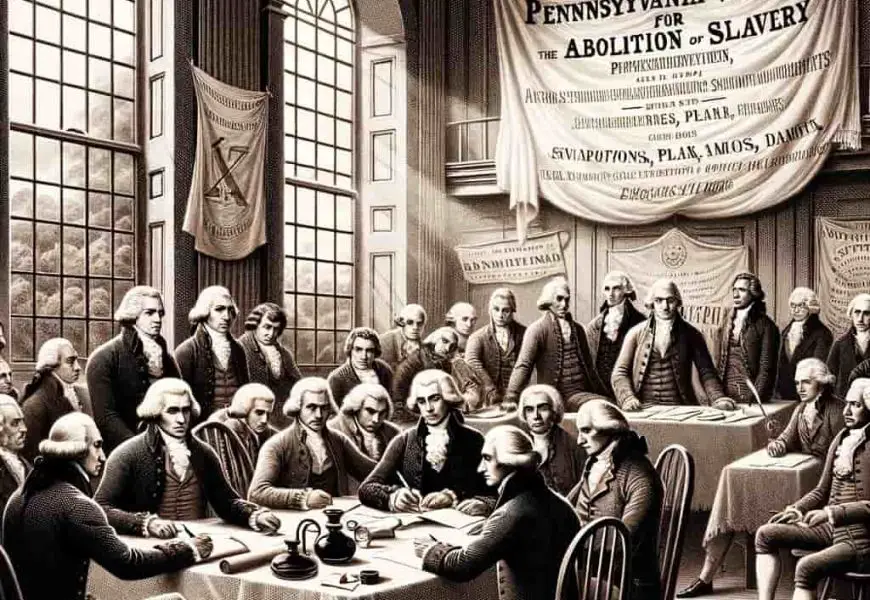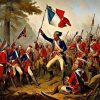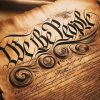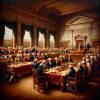In the annals of American history, the struggle for freedom and equality has been a central theme. A crucial moment in this quest for justice occurred in 1790 when the “Pennsylvania Society for Promoting the Abolition of Slavery (1790)” penned a significant petition. Advocating for the end of slavery, this document marked a monumental stride in the fight against the institution of bondage in the U.S. In this article, we will explore the historical context, the contents of the petition, and its far-reaching implications, shedding light on a chapter of American history that played a pivotal role in shaping the nation’s moral direction.
Slavery’s Contradiction in Revolutionary America
To comprehend the meaning of the Pennsylvania Society for the Nullification of Subjection’s request of 1790, we should initially investigate the authentic setting wherein it arose. By the late eighteenth century, servitude had immovably laid a good foundation for itself as a hostile issue in the U.S. The foundation of bondage had been profoundly dug in the country since its pilgrim days, especially in the southern states, where it assumed a crucial role in the monetary and social design.
Notwithstanding, the progressive soul of the late eighteenth century had ignited an enthusiasm for freedom and equity. The American Transformation had lit a fire of liberty, with the Statement of Autonomy strongly broadcasting, “All men are made equivalent.” These words, written by Thomas Jefferson in 1776, rang empty notwithstanding and proceeded with servitude, provoking numerous to scrutinize the ethical quality and inconsistency of keeping a country established on standards of opportunity while at the same time maintaining the organization of subjugation.
Pennsylvania Society for Promoting the Abolition of Slavery
During this setting of progressive standards, the Pennsylvania Society for the Cancelation of Bondage was formed. Established in 1775 by remarkable figures like Benjamin Franklin, Anthony Benezet, and Dr. Benjamin Rush, the general public was among the first of its sort in the U.S. It had a reasonable and unambiguous mission: to advocate for the total annulment of subjugation and the quick liberation of all oppressed people.
The general public started its work by participating in various exercises to bring issues to light about the savagery of subjugation. They distributed abolitionist bondage writing, coordinated addresses, and worked indefatigably to construct public help for their objective. Addressed their endeavors, and by 1780, Pennsylvania had turned into the primary state in the recently framed U.S. to pass a slow nullification regulation.
The 1780 Steady Abrogation Act
The 1780 Pennsylvania Gradual Abolition Act was a milestone piece of legislation. It specified that any child born to an enslaved mother after March 1, 1780, would be considered free, but only after serving a period of indentured servitude until they reached a specific age. This legislation marked a significant departure from the previous status quo and showcased the Pennsylvania Society for Promoting the Abolition of Slavery’s tireless efforts.
The Constitution of 1787: Slavery Compromises and Abolitionist Discontent
Once more, as the recently shaped U.S. was making its Constitution in 1787, the issue of bondage became the dominant focal point. Delegates from the North and South wrestled with resolving the petulant issue. The Constitution, at last, incorporated a few trade-offs. For instance, the Three-Fifths Compromise regarded enslaved individuals as three-fifths of a person for representation and taxation.
While the Constitution didn’t expressly underwrite subjection, it contained arrangements that safeguarded the organization, like the Criminal Slave Statement. These trade-offs deeply frustrated numerous abolitionists, including members of the Pennsylvania Society for the Annulment of Servitude. In any case, they perceived the Constitution as a beginning stage, not a last decision, and kept upholding the cancellation of bondage at both the state and public levels.
The 1790 Abolitionist Appeal from the Pennsylvania Society
In 1790, the Pennsylvania Society for the Cancelation of Servitude made a critical stride by drafting a request to the U.S. Congress. This request, frequently referred to as the “Appeal from the Pennsylvania Society for the Nullification of Subjection (1790),” was a solid and energetic interest for the central government to move against the organization of bondage. It was a milestone crossroads throughout the entire existence of abolitionist development in the U.S.
The appeal started by recognizing the standards established after the country was established, especially the beliefs of freedom and equity. It expressed:
- “Your memorialists, especially those who took care of the bothers emerging from subjugation, trust it to be their vital obligation to introduce this subject to your notification.”
This initial assertion outlined the request as an ethical objective, attractive to the rules that had roused the American Upset.
Condemnation of Slavery by the Pennsylvania Society:
“From an influence that equivalent freedom was initially the Part and is as yet the Inheritance, all things considered, and impacted by areas of strength for mankind and the Rule of their Organization, your memorialists imagine themselves bound to utilize all reasonable undertakings to slacken the Groups of Subjugation.”
The Pennsylvania Society for the Annulment of Servitude ruled out vagueness in their position against subjugation. They contended that it was not just an infringement of the standards of freedom and humanity but, in addition, despite the actual substance of the U.S.
Appeal for Congressional Action Against Slavery
“That we might be empowered to stretch out our help to the people who might be henceforth imported; your memorialists consider it their obligation to supplicate; that you will be satisfied to establish the groundwork of a regulation; that no subjection will exist in a land where such valuable freedoms and honors are richly given to its occupants.”
In this supplication, the general public begged Congress to pass a regulation to prepare for the total nullification of subjugation in the U.S.
Congressional Deliberations on the 1790 Anti-Bondage Appeal
The request from the Pennsylvania Society for the Cancelation of Bondage (1790) was sent to Congress in February 1790. The reaction to the appeal was blended, mirroring the profound divisions inside the country over the issue of subjection.
In Congress, the request ignited warm discussions. A few individuals from Congress were thoughtful of the general public’s demand and saw the ethical basis for resolving the issue of servitude. In any case, numerous Southern delegates fervently went against any government impedance in establishing subjection, seeing it as an issue to be chosen by individual states.
Ultimately, Congress referred the request to a committee for further consideration. This committee, chaired by Thomas Scott of Pennsylvania, has deliberated on the issue but has not taken any substantial action. The request stalled in Congress, and no federal legislation was passed in response to its appeal
Impact and Legacy of the Abolitionist Appeal
Although the appeal didn’t bring about quick administrative activity, its importance can’t be put into words. It addressed a striking and principled stand against servitude when the establishment was profoundly settled in American culture. The Pennsylvania Society for the Nullification of Servitude’s request filled in as a mobilizing weep for abolitionist development and kept moving people into the future of activists.
One of the most striking traditions of the appeal was the work of the Pennsylvania Society for the Abrogation of Subjection and other comparative associations. These abolitionist bunches endured in their endeavors to bring issues to light, form public aid, and support the privileges of subjugated people. Throughout the next many years, their work would add to the developing energy for nullification.
Besides, the request laid the foundation for future abolitionist servitude activism and discussions over the issue of subjugation in the U.S. The ethical contentions outlined in the appeal would be reverberated by ensuing abolitionists, and the actual request would be referred to in ongoing conversations about the cancellation of bondage.
Conclusion
The “Request from the Pennsylvania Society for the Nullification of Subjugation (1790)” demonstrates the steadfast responsibility of early abolitionists to the reason for opportunity and correspondence. Albeit the request didn’t achieve quick change, it played a crucial role in propelling the abolitionist development and forming the public discussion on subjection.
The individuals from the Pennsylvania Society for the Cancelation of Bondage comprehended that the battle for equity was long and exhausting. Yet they stayed resolute in their conviction that all people had the right to live, liberated from the obligations of subjection. Their request was a firm announcement of their commitment to the standards of freedom and fairness. After that, they established the U.S.
As we think about this vital crossroads in American history, we are helped to remember the significance of defending what is correct, even despite being settled in resistance. The tradition of the Pennsylvania Society for the Cancelation of Servitude’s request keeps rousing us to take a stab at a more evenhanded society where the standards of opportunity and equity are maintained for all.










